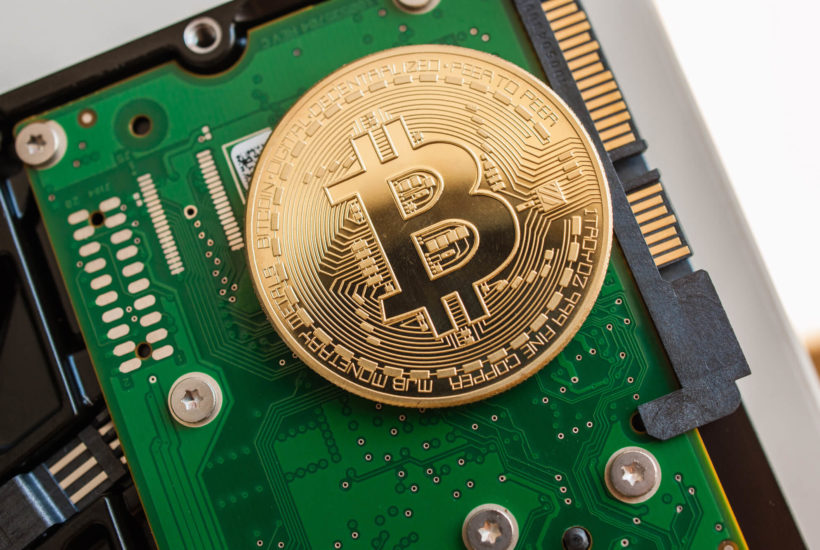Crypto
5 things to know to keep your cryptocurrency safe from harm
Investors who choose to put their money in cryptocurrencies are prone to plenty of risks. With crypto all the rage these days, they are not completely safe. Here are six ways investors can stay alert and keep their crypto investments safe.

In today’s age, technology has improved lives in more ways than you can count. However, as with anything, it comes with its own sets of risks. Cryptocurrency exchanges, for instance, have been on the receiving end of thefts and hacks. In fact, it’s become so common that it’s not a matter of if anymore but of when. When will the next hack happen again?
Of course, it’s not the Wild West experience as it was many years ago, but investors who choose crypto as an asset is still prone to many, many risks. It’s not the same tricks as well, as scammers are looking for new ways every day to separate you from your digital assets. In any case, here are some tips and reminders to help keep your cryptocurrencies safe from harm:
1. Knowing their game
Knowing is half the battle, and this couldn’t be truer for cryptocurrency schemes. CMD attacks, keyloggers, SIM swaps, screen scrapers, etc.—there’s no shortage of ways that hackers can use to commit fraud, and learning and all about them gives you an ace up your sleeve.
2. Security isn’t foolproof
It seems hard to accept, since cryptocurrency’s decentralized nature is supposed to keep it really safe, right? Well, yes. But it’s also crucial to understand that crypto is still far from perfect. The sooner you take into account that going into crypto comes with risks, the sooner you can prepare for it and find the best possible way to store your assets.
3. Negligence
In the previous number, we mentioned how crypto, in general, is far from perfect, but sometimes that imperfection comes from simple negligence on the investor’s part. For those who participate in exchanges, it may be something as simple as not practicing enough precautions. For “hodlers,” it may be something as simple as talking about how much crypto you own, or making excessive amounts of personal identification accessible. So don’t make yourself a bigger target than you have to be, and always exercise extreme precaution. You’ll thank yourself later.

Crypto hacking has gone from the question of “Will it happen?” to “When will it happen next?” So, it is important to keep backups and secure your online keys. (Source)
4. Hot and cold
When it comes to safeguarding your assets, there are two main approaches: cold and hot storage. A cold storage means storing your private keys offline, like in a flash drive, while the latter refers to applications that keep your keys, under lock and key online. The key to this is balancing everything, after all, putting all your private keys in one place can be an inconvenience (cold storage) or high at risk (hot storage). So keep it balanced. Store some of your funds online, but make sure that you have half of it in cold storage for better safekeeping. It’s also a good idea to backup everything.
5. Extra precaution
This all ties back into the earlier points discussed. Always practice extra precaution. Use a different password and unique password for every account, don’t access your crypto asset accounts when on an untrusted network (like the WiFi at your local McDonald’s), enable two-factor authentication, and be alert when clicking emails and ads.
Although fledging and still far from perfect, cryptocurrency is fun and is a great way to get introduced into decentralized investing. Of course, there’s no perfect solution to protecting your assets, but there is also no wrong way to keep them safe. So keep these tips in mind, and take into account that as the market matures, the concept of security follows as well. Being well-rounded and aware of the risks already get you one step ahead of everyone else.
(Featured image by DepositPhotos)

-

 Impact Investing4 days ago
Impact Investing4 days agoVernazza Autogru Secures €5M Green Loan to Drive Sustainable Innovation in Heavy Transport
-

 Cannabis2 weeks ago
Cannabis2 weeks agoCannabis Company Adopts Dogecoin for Treasury Innovation
-

 Business7 days ago
Business7 days agoLegal Process for Dividing Real Estate Inheritance
-

 Markets2 weeks ago
Markets2 weeks agoStock Markets Surge Amid Global Uncertainty, But Storm Clouds Loom


























You must be logged in to post a comment Login